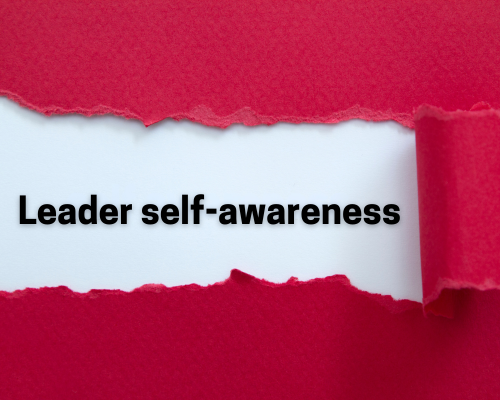Leader Self-awareness and Its Implications
Leader introspection can foster greater self-awareness and enable leaders to make informed decisions, build trust with their teams, and navigate complex situations effectively. A leader must know what may help and hinder their performance and team dynamics. In addition, a leader must know how they are perceived by others — their reputation. Armed with self-awareness calibrated with feedback about one’s reputation, a leader may be better positioned to recognize the need for and potentially adapt behavior for increased effectiveness.
Some practical considerations to increase self-awareness and to calibrate:
Emotional intelligence: Recognizing and managing your own emotions, as well as understanding the emotions of others, allows you to create a positive and productive environment. (Goleman, D., 1998. Working with emotional intelligence.)
Self-reflection: Regularly and critically evaluating your thoughts, actions, and motivations helps you identify blind spots and areas for improvement. (Drath, R. H., & McCauley, C. D., 2005. The adaptive leader: Leading through change and uncertainty. Jossey-Bass.)
Feedback seeking: Actively seeking constructive feedback from diverse perspectives provides valuable insights into how you are perceived and areas where you can grow. (Lencioni, P. M. 2006. Feedback: The art of receiving and giving helpful advice.)
Humility: Recognizing your limitations and acknowledging mistakes allows you to learn from experience and be open to new ideas. (Kouzes, B. Z., & Posner, B. J., 2017. The leadership challenge: Five essential practices for exemplary leaders. John Wiley & Sons.)
A leader who lacks self-awareness can have a detrimental impact on their teams, leading to cover-ups of mistakes and inefficient decision-making. To address this, organizations must support individuals in developing self-awareness. Valid and reliable personality assessments offer insights aiding individuals in understanding their strengths, potential derailers, and unconscious values.
Cultivating self-awareness and behavior adaptation is an ongoing process, requiring feedback and support from managers, colleagues, and coaches. A professional coach can provide objective perspectives, debrief assessment results, and help leaders connect insights to their professional contexts. In addition, a coach can emphasize the importance of accountability and actionable steps in setting and achieving development goals.
References
Day, D. V. (2001). Leadership development through self-awareness and reflection. Human Resource Development Review, 10(3), 279-290.
Avolio, B. J., & Goleman, D. (2007). Emotional intelligence in leadership: Succeeding from the inside out. John Wiley & Sons.
Manz, C. C. (2012). Self-leadership theory: Theory, research, and application. SAGE Publications.

